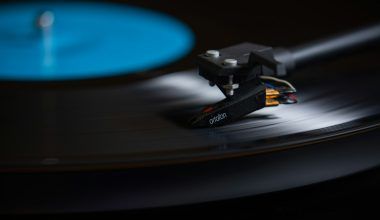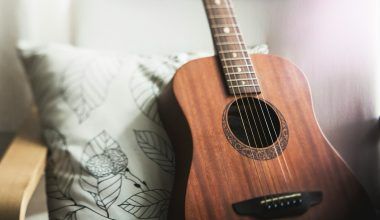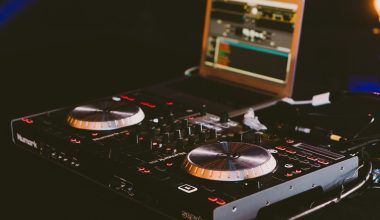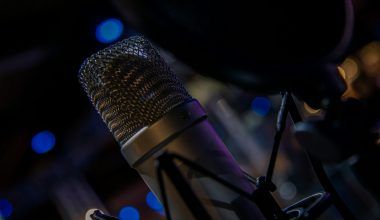When it comes to writing about music, one of the most common questions is: do you capitalize music genres? At first glance, it might seem like a simple question. But if you’ve ever hesitated while typing “jazz” or “Rock,” you’re not alone. Let’s unravel this question together and clear up the confusion.
What’s the General Rule?
Most of the time, music genres are written in lowercase. Genres like jazz, rock, classical, and hip-hop typically do not need capitalization. Why? Because they are considered common nouns, not proper nouns. Proper nouns, like names of people or specific places, are capitalized. But music genres are more like categories or descriptions, so they stay lowercase in most cases.
For example:
- I love listening to jazz on a rainy day.
- Rock is my favorite genre for road trips.
- She’s studying classical music at university.
See how the genres are lowercase? That’s the standard.
When Should You Capitalize Music Genres?
Even though lowercase is the rule, there are exceptions. Sometimes, you might need to capitalize a music genre. Here’s when:
- At the Beginning of a Sentence: Like any word, a music genre gets capitalized when it starts a sentence. For example:
- Jazz has a rich history rooted in African American culture.
- Part of a Title: Titles follow specific capitalization rules, and you’ll capitalize music genres according to the style guide you’re using. For instance:
- The Evolution of Rock Music
- A Beginner’s Guide to Hip-Hop
- As a Proper Noun: Some genres are closely tied to specific movements, groups, or eras, making them proper nouns in context. For example, “Romantic” in “Romantic music” refers to the Romantic era in classical music, so it’s capitalized.
Why Does This Rule Exist?
The idea of capitalizing proper nouns but not common nouns keeps writing consistent and easy to read. Imagine if you had to figure out whether to capitalize every word based on its importance. That’d be confusing, right? Music genres fall into the category of descriptions, so we treat them like any other descriptive word.
What About Subgenres?
Subgenres of music follow the same rules. Whether you’re talking about indie rock, baroque pop, or smooth jazz, the same lowercase rule applies. These terms describe specific styles within broader categories, so they’re still considered common nouns.
For example:
- Indie rock gained popularity in the 2000s.
- Smooth jazz is perfect for relaxing evenings.
Does Style Matter?
Different style guides might have their own quirks when it comes to capitalization. For example:
- The Associated Press (AP) Stylebook recommends lowercase for music genres.
- The Chicago Manual of Style also prefers lowercase unless the genre is derived from a proper noun (e.g., “Bach” in “Bachata”).
If you’re writing professionally, check the style guide your editor or publication prefers. It’ll save you from second-guessing.
Examples from Everyday Writing
Here are a few examples to show how music genres fit into sentences naturally:
- My playlist is a mix of pop, rock, and electronic music.
- Have you ever tried listening to reggae while working?
- Punk rock emerged as a counterculture movement in the 1970s.
Notice how all the genres remain lowercase? That’s the beauty of following a simple rule.
What About Cultural Contexts?
Sometimes, music genres carry cultural or historical significance that makes them feel more like proper nouns. For example:
- Hip-hop is not just a music genre but a cultural movement.
- The Blues has deep roots in African American history and storytelling.
In these cases, some writers choose to capitalize genres to emphasize their importance. However, this is more a stylistic choice than a strict rule.
Do Artists Capitalize Music Genres?
If you’ve ever looked at album covers, you might have noticed some artists capitalize genres. This is often for aesthetic or branding purposes. For example, an album might say “JAZZ CLASSICS” in all caps for impact. But in regular writing, the rules we’ve discussed still apply.
Tips for Writing About Music Genres
- Stick to lowercase unless you have a specific reason to capitalize.
- When in doubt, follow the style guide you’re working with.
- If a genre feels like a proper noun in context, consider capitalizing it, but be consistent.
- Always proofread! Typos in capitalization can make your writing look careless.
Why Consistency Matters
Consistency in capitalization makes your writing easier to read. Imagine flipping between “jazz,” “Jazz,” and “JAZZ” in the same paragraph. It’s distracting, right? Keeping your usage uniform helps readers focus on the content instead of the formatting.
Final Thoughts
So, do you capitalize music genres? Most of the time, the answer is no. Stick with lowercase for common nouns, and reserve capitalization for proper nouns, titles, or stylistic purposes. By following these simple guidelines, your writing about music will be clear, professional, and easy to read.
Whether you’re a music blogger, a student, or just someone who loves discussing genres, this guide should make things simpler. And remember, the more you write, the more natural these rules will feel. Happy writing!
For further reading, explore these related articles:
- Swae Lee – The Story of a Music Star Who Inspires the World
- The Man Lyrics – A Song That Speaks to Everyone
For additional resources on music marketing and distribution, visit DMT Records Pvt. Ltd..






